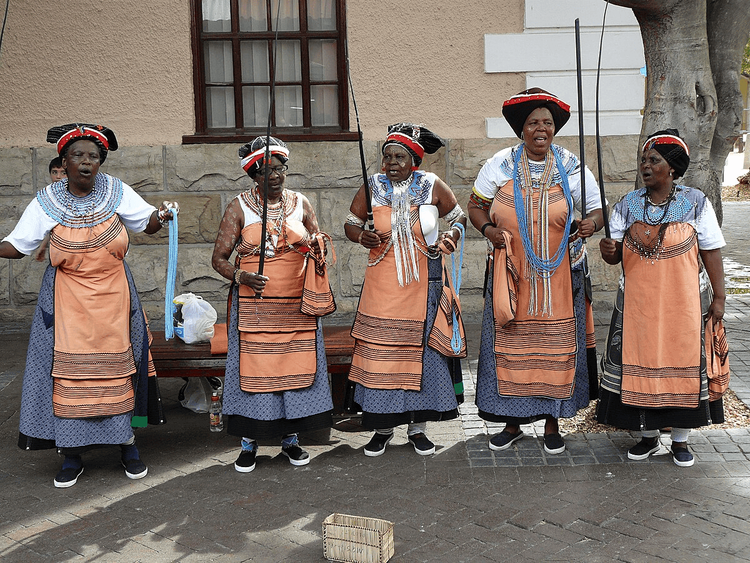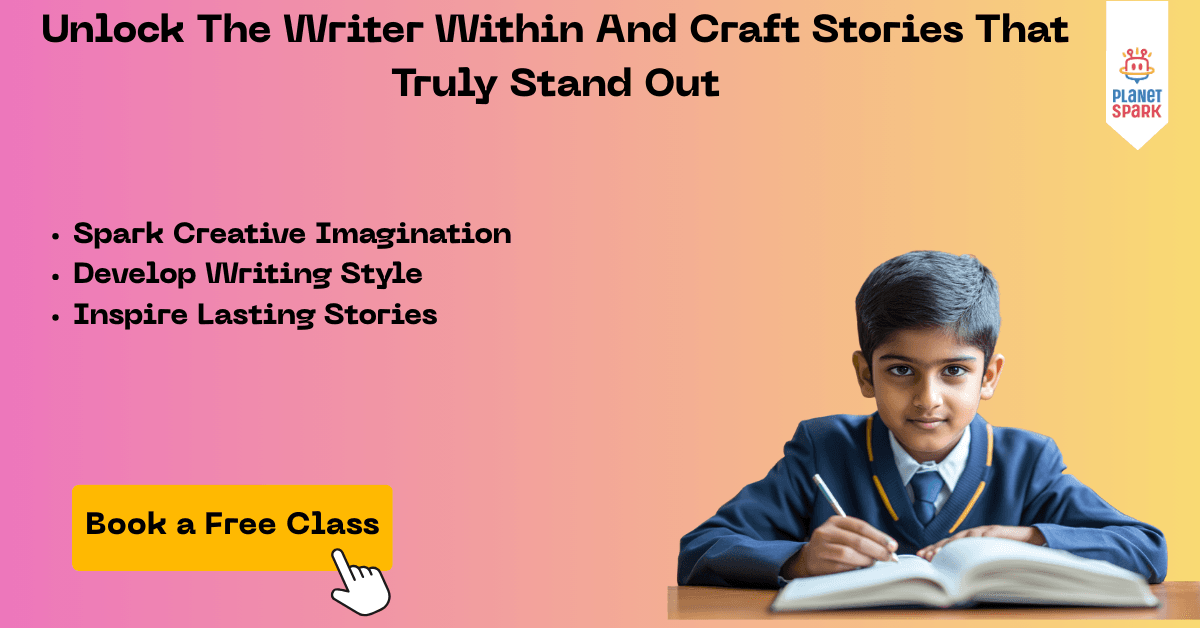Explore Xhosa Culture, Clothing, and Traditions | PlanetSpark
Last Updated At: 19 Sep 2025
14 min read

Table of Contents
South Africa is a land of rich cultural diversity, and among its many vibrant communities, the Xhosa people stand out for their deep-rooted traditions, remarkable oral history, and enduring cultural practices. Known as the AbeNguni or Xhosa-speaking people, the Xhosa are the second-largest ethnic group in South Africa, making up nearly 18% of the country’s population. Their presence is strongly felt in the Eastern Cape province, where their language, heritage, and legacy continue to thrive.
At PlanetSpark, we believe that learning about diverse cultures is essential for building empathy, storytelling skills, and broader worldviews. Through our Creative Writing Courses, children learn to explore narratives from around the globe, including those rooted in indigenous heritage like the Xhosa. With expert mentors, AI-powered tools, and engaging formats, PlanetSpark empowers kids to become expressive writers and confident communicators.
Historical Roots of the Xhosa People
The Xhosa people have lived in South Africa's Eastern Cape for centuries. They are part of the larger Bantu ethnic group and share cultural and linguistic ties with other Nguni-speaking communities. The traditional Xhosa Kingdom was primarily located between the Mbhashe River and the Gamtoos River (or Xelexwa River), extending inland to the Winterberg Mountains near Somerset East.
The Xhosa Kingdom was divided into two primary houses:
- The Rharhabe House, which includes chiefships such as AmaNgqina, AmaMbalu, amaNtinde, amaGqunukhwebe, imiDange, imiDushane, and amaNdlambe.
- The Gcaleka House, which historically shared similar clan names and territories.
Several other Xhosa-speaking tribes were either tributaries or subordinate kingdoms under the Xhosa monarchy. These included:
- The Thembu: Located between the Mbhashe and Mthatha Rivers
- The Bhaca: Found between the Tina and Mzimvubu Rivers
- Mpondo and Mpondomise: Between the Tina, Tsitsa, and Mthatha Rivers
These territories represent the geographical and political expanse of Xhosa influence, with ancient settlements dotting South Africa's vast eastern landscapes.

Oral Tradition and Founding Legends
Oral tradition is a cornerstone of Xhosa heritage, used for generations to preserve history, genealogy, values, and ancestral wisdom. These stories, passed down by elders, praise singers (iimbongi), and spiritual leaders, remain integral to understanding Xhosa identity and social structure. Among the most cherished oral accounts is the legend of the founding of the Xhosa nation and the pivotal role of the royal lineage that shaped it.
The First King: Xhosa
According to legend, the first king of the Xhosa people was named Xhosa.
He is considered the mythical forefather from whom the entire nation derives its name.
His rule marked the beginning of a structured society, laying the foundations for the cultural and political systems that would follow.
King Phalo: The Forefather of Dynasties
One of the most revered figures in Xhosa history is Phalo, a direct descendant of King Xhosa.
Phalo had two sons who would later divide the royal lineage into two powerful dynastic houses:
Gcaleka ka Phalo – founder of the Great House (main royal line).
Rarabe ka Phalo – founder of the Right-Hand House (secondary but powerful branch)
The Conflict Between Gcaleka and Rarabe
This legendary family dispute is a defining moment in Xhosa oral history.
Gcaleka ka Phalo
Known to be spiritually inclined and introspective.
Chose to become a diviner, a decision frowned upon for someone of royal blood.
Feared his brother’s popularity and staged a coup against King Phalo, hoping to solidify his claim to the throne.
Rarabe ka Phalo
A brave warrior and respected leader among his people.
Remained loyal to his father, defended the throne, and crushed Gcaleka’s rebellion.
After the conflict, with Phalo’s approval, Rarabe moved to the Amathole Mountains and formed his royal line.
The Legacy of the Two Houses
The division of the royal line led to the creation of two major dynasties that shaped Xhosa politics and society:
The Great House of Gcaleka
Considered the senior royal line.
Traditionally held the position of paramount leadership in the Xhosa Kingdom.
Based in what is now the Eastern Cape region.
The Right-Hand House of Rarabe
Established by Rarabe after settling in the Amathole Mountains.
Played a crucial role in expanding Xhosa territory, especially through military conquests of neighboring Khoikhoi communities.
Later gave rise to powerful chiefs and kings, including those who resisted colonial rule.
Oral Tradition as Historical Record
These founding legends are not mere folklore—they are oral blueprints that explain Xhosa social structure, succession politics, and territorial boundaries.
Elders and praise poets still recount these stories at initiation ceremonies, royal events, and communal gatherings.
The tales of Phalo, Gcaleka, and Rarabe serve to unite Xhosa people across different clans, reminding them of a shared heritage and ancestral pride.
The Role of the Praise Singer (Imbongi)
In Xhosa culture, the Imbongi (plural: Iimbongi) occupies a revered and essential role. More than just poets, these individuals are guardians of oral history, spiritual intermediaries, and cultural commentators. Their presence is both ceremonial and political, artistic and ancestral.
Who Is an Imbongi?
An imbongi is a traditional Xhosa praise singer whose role includes:
Composing and reciting praise poetry (imibongo) to honor individuals, especially chiefs, kings, and ancestors.
Preserving oral history by recalling lineages, historical milestones, and heroic deeds.
Acting as a spiritual conduit, invoking the presence and guidance of ancestors during important gatherings.
Critiquing or celebrating leadership through stylized and metaphor-rich language.
Where Do They Perform?
Imbongi are typically present at significant cultural and political events, such as:
Royal court proceedings
Funerals and ancestral rituals
Initiation ceremonies
National and political gatherings
Community celebrations and public holidays
They use dramatic vocal techniques, chanting, symbolic attire, and exaggerated gestures to enhance their delivery and emotional resonance.
Symbolism in Appearance
Imbongi wear traditional and symbolic attire that reflects their cultural and spiritual significance:
Animal hides or cloaks – representing strength, ancestral connection, and status
Beaded accessories – showcasing tribal artistry and sacred meanings
Headgear or feathers – used to symbolize authority or divine insight
A Moment in History: Zolani Mkiva and Mandela
One of the most iconic moments showcasing the power of an imbongi occurred in 1994, when:
Zolani Mkiva, then a young praise singer, stood beside Nelson Mandela at his presidential inauguration.
Mkiva’s rhythmic and resonant imibongo echoed through the Union Buildings in Pretoria.
His words captured the emotional journey of South Africa's liberation and the pride of the Xhosa people.
This moment reinforced Mandela’s identity not just as a global leader but as a cultural son of the Xhosa nation.
Oral Poets as Living Libraries
Imbongi are considered living repositories of Xhosa oral literature, thanks to their:
Mastery of idiomatic expressions and indigenous metaphors
Deep knowledge of tribal history, genealogy, and philosophy
Ability to speak spontaneously, guided by emotion, memory, and intuition
Their poetry is not written, it’s lived, felt, and delivered in the moment, shaped by the atmosphere, the audience, and the occasion.

The Imbongi in Modern Society
While rooted in tradition, iimbongi have evolved in modern contexts:
National ceremonies often include an imbongi to lend cultural gravitas.
Some collaborate with musicians, educators, and cultural activists to promote indigenous heritage.
They serve as bridges between the past and present, reminding communities of their shared roots.
Why the Imbongi Still Matters
The role of the praise singer endures because:
They strengthen cultural identity in a changing world.
Their presence reaffirms the spiritual and historical depth of public events.
They nurture pride, continuity, and reflection within Xhosa society and beyond.
Cultural Rites and Ceremonies
1. Male Initiation (Ulwaluko)
Among the most critical rites in Xhosa culture is ulwaluko, or male initiation. Upon reaching puberty, boys attend initiation school, referred to as "the mountain," where they receive spiritual guidance and life teachings from elders. The experience concludes with a ceremonial emergence, marking their passage into adulthood.
2. Lobola (Bride Price)
Marriage in Xhosa culture involves lobola, a dowry custom in which a man presents livestock or valuable goods to the bride's family as a gesture of respect and commitment. This practice not only solidifies family bonds but also maintains cultural continuity across generations.
3. Traditional Dress
Xhosa clothing is not just about aesthetics; each garment tells a story of the wearer’s status, age, and stage of life.
1. For Women
Married women (amakhosikazi) wear doeks (headscarves), embroidered skirts, and blankets over their shoulders.
Young women wear beadwork, colorful wraps (imibhaco), and aprons.
Accessories like beaded necklaces, earrings, and waistbands are common and highly symbolic.
2. For Men
Men often wear blankets, tunics, or leather garments with beaded adornments, particularly during ceremonies.
Initiated men may wear distinct face paints and beaded ornaments to signify their new status.
These garments are often hand-made and passed down through generations. Beadwork patterns and colors may indicate the clan or marital status of a person.
4. Ancestral Worship and Spirituality
Xhosa belief systems often involve communication with ancestors, especially through dreams. Traditional healers, or sangomas, interpret these messages and conduct rituals to maintain spiritual harmony. Illness and mental health challenges are often addressed through such ancestral ceremonies.
Contemporary Xhosa Life and Urban Migration
Modern Xhosa Identity
While urbanization and modernization have influenced Xhosa culture, many people maintain strong ties to their roots. Traditional attire is worn during weddings, funerals, and other ceremonies. Language preservation is a key concern, especially with English and Afrikaans dominating formal education and media.
Younger generations are blending tradition with modernity, adopting urban Xhosa fashion, reviving Xhosa poetry and rap, and incorporating isiXhosa into digital platforms.
Cultural Challenges
Like many indigenous communities, the Xhosa face challenges such as:
Language erosion in schools and homes
Cultural appropriation without authentic representation
Health and safety concerns in traditional initiation schools
Economic marginalization in rural regions
However, grassroots organizations, artists, educators, and elders are working diligently to preserve and promote Xhosa heritage.
Famous Xhosa People
The Xhosa nation has produced several iconic leaders, artists, and change-makers:
1. Nelson Mandela
Perhaps the most famous Xhosa figure globally, Mandela was born in the village of Mvezo in the Eastern Cape. A member of the Madiba clan (part of the Thembu people), he played a critical role in the anti-apartheid struggle and became South Africa's first black president.
2. Thabo Mbeki
Successor to Mandela, Mbeki is also Xhosa and served as President of South Africa from 1999 to 2008.
3. Winnie Madikizela-Mandela
A prominent anti-apartheid activist and politician, she played a crucial role during Nelson Mandela’s imprisonment and afterward.
4. Steve Biko
A leading figure in the Black Consciousness Movement, Biko’s writings and activism inspired resistance during apartheid. He died in police custody in 1977.
5. Miriam Makeba
Often referred to as “Mama Africa,” this Grammy-winning singer and civil rights activist was of Xhosa and Swazi descent. She used music as a tool for resistance and international solidarity.
6. John Kani
An acclaimed playwright, actor, and director, Kani is a global ambassador for South African theatre and heritage.
7. Trevor Noah
Though not fully Xhosa (his mother is Xhosa and his father is Swiss-German), the comedian and former host of The Daily Show has often spoken about his experiences growing up in a mixed-race family in apartheid South Africa.
How PlanetSpark Helps You Learn to Express Cultural Identity Creatively
Understanding your cultural roots is essential for personal identity and self-expression. Through PlanetSpark’s Creative Writing Courses, learners of all ages can:
Write and share stories about their heritage.
Master storytelling techniques using cultural folklore and real-life events.
Learn to structure essays and speeches about topics like identity, tradition, and pride.
Whether you're writing about Xhosa clan lineages, initiation ceremonies, or your favorite Xhosa hero, PlanetSpark helps you find your unique voice.
PlanetSpark: Nurturing Tomorrow’s Writers with Creative Expression
At PlanetSpark, we don’t just teach writing, we nurture expression. Our Creative Writing Courses for kids help them:
- Craft imaginative stories with plot, character, and dialogue
- Explore descriptive, persuasive, and narrative styles
- Understand global cultures to build inclusive narratives
Here’s how we make that possible:
1:1 Personal Trainers for Every Child
- Live, personalized training by certified communication experts
- Tailored feedback on grammar, fluency, storytelling, and public speaking
- Deep mentor-child engagement that motivates consistent growth
Personalised Curriculum and Learning Roadmap
- Assessments to identify language gaps
- Structured progress levels from basic writing to public speaking
- Updated regularly based on feedback and milestones
SparkX – AI-Enabled Video Analysis Tool
- AI-analyzed speech uploads with metrics on voice clarity, posture, grammar, and stage presence
- Detailed performance reports for measurable improvements
AI-Led Practice Sessions
- Real-time speaking practice with a virtual AI coach
- Instant feedback on storytelling, voice, and fluency
- Consistent learning beyond live sessions
Spark Diary – Digital Writing Journal
- Daily writing prompts and reflections
- Develops creativity, structure, and confidence in writing
Gamified Learning Modules
- Spelling, grammar, and vocabulary games
- Daily quizzes and challenges to enhance retention
- Learning that feels like play
Structured Parent-Teacher Meetings
- Transparent performance reports
- Collaborative planning for future goals
Comprehensive Progress Reports
- Evaluates grammar, critical thinking, confidence, and delivery
- Includes trainer notes and action plans
Exclusive Learning Clubs
- Debate, podcasting, storytelling, and writing clubs
- Social and collaborative learning experiences
Sparkline: A Safe Content-Sharing Platform
- Share speeches and stories safely
- Engage with peer-created content
Talent Showcases and Competitions
- Regular contests for poetry, storytelling, and speech
- Recognition through certificates and open mic events
SparkBee and SparkShop
- Interactive quizzes for daily grammar and vocab practice
- Affordable eBooks covering core English skills
Conclusion
The Xhosa people are a testament to the resilience and richness of African heritage. From ancient legends and structured kingdoms to spiritual rituals and modern migration, the Xhosa continue to shape South Africa's cultural landscape. Their traditions, values, and stories inspire not only their communities but also those eager to understand the power of legacy and identity.
At PlanetSpark, we embrace these powerful narratives through our creative writing programs. Help your child become a culturally aware storyteller.
FAQs About the Xhosa People
1. How does the Xhosa community celebrate its heritage?
Xhosa people celebrate their heritage through clothing, language, music, rituals, and oral storytelling. Traditional attire and ceremonies like male initiation and lobola reflect cultural identity.
2. What are Xhosa values?
One of the core values is Ubuntu, meaning "humanness." It emphasizes compassion, community, and moral responsibility. During historical conflicts, women and children were protected under this code.
3. What is traditional Xhosa dress?
Xhosa dress includes beaded accessories, skirts like isikhakha and imibhaco, and symbolic jewelry that indicates marital or social status.
4. What are Xhosa cultural practices?
Key practices include ancestral worship, male initiation (ulwaluko), lobola, and spiritual healing. These customs ensure the continuity of their identity.
5. What do the Xhosa eat?
Xhosa cuisine is largely maize-based. Dishes often include sour milk (amasi), beef, mutton, and goat meat, accompanied by stews or gravy.
6. How do modern Xhosa communities preserve tradition?
Many urban Xhosas maintain ties to rural homes and still observe traditional ceremonies, festivals, and dress codes.
7. What language do the Xhosa speak?
The Xhosa language, known for its distinct click consonants, is one of South Africa’s official languages and is spoken by over 8 million people.
Personalized Communication Report
Record a video to get a AI generated personalized communication report for your child
Select Learner's Class

Hi There, want to try these
tips for your child with
LIVE with our expert coach?
Let's check your child's
English fluency
